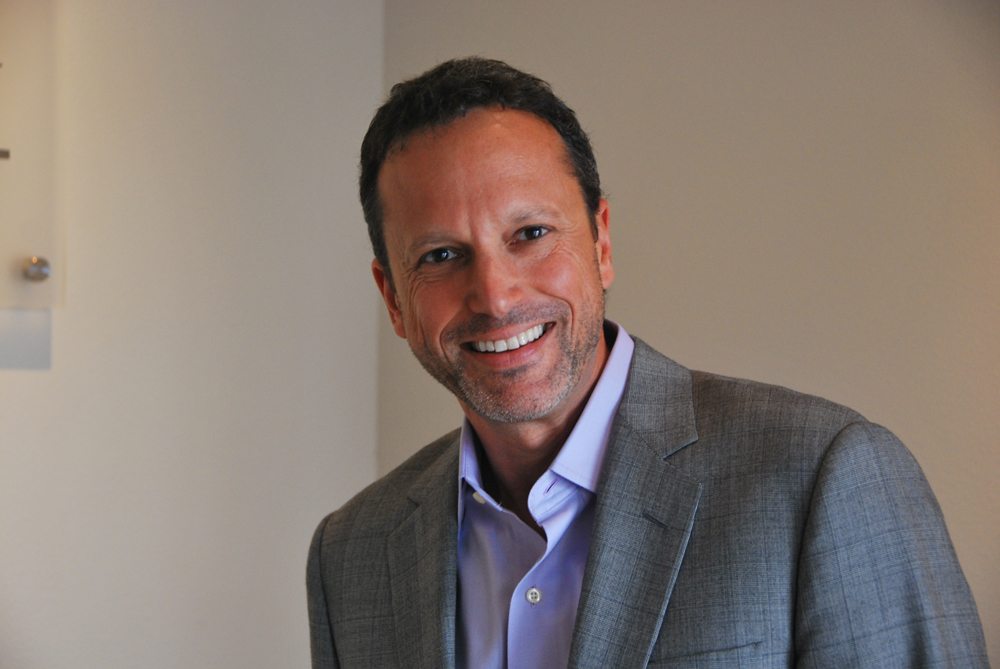There seem to be quite a number of questions online about instructions and expectations before and after surgery. With that in mind, I thought I would share our “guidelines” for migraine surgery. Please call our Center at 805-969-9004 with any questions you might have…..
Guidelines for Headache Surgery
Before your surgery
• Maintaining a well balanced diet will facilitate optimal healing. It’s also important to keep well hydrated the days leading up to surgery.
• Stop smoking 3 weeks before surgery. Nicotine reduces blood flow to the skin and can cause significant complications during the healing process.
• Stop drinking alcohol, taking blood thinning medications, herbs, and supplements 10days before surgery. Please refer to the provided list.
• Schedule any pre-operative testing and medical clearance examinations required by Dr. Lowenstein. EKG must be within 6 months and blood work within 2 weeks.
• Plan accordingly. Secure a responsible adult to drive you to and from surgery and remain with you of a minimum of 24 hours. It is a requirement that the person picking you up after surgery is the same person staying with you until the post op appointment the day after surgery. Plan to stay in a hotel in town if you are from out of town.
• Discuss with Dr. Lowenstein amount of time needed off work and other restrictions such as driving, lifting, housework, and exercising.
• If you color your hair, do so before surgery. You will not be able to do so for 6 weeks after surgery.
• We will provide you with your prescriptions at your pre-operative appointment.
• Bring your prescribed pain medication to the office day of surgery.
• You will need antibacterial ointment after surgery, if frontal surgery is performed.
• You may find it helpful to have lozenges, crackers, soup, and other comfort foods available for after surgery.
• Maintain optimal health and hygiene. A cold, virus, or other illness may require your surgery to be rescheduled. Call the office if any illness or change in health status arises.
• Maintain proper skin care. This includes daily use of sunscreen or sunblock. Also, wash your face with an antibacterial soap twice a day starting two days before surgery.
• Shower the night before and the morning of surgery using antibacterial soap. Do not apply any lotions, makeup, or hair products day of surgery.
• You may not eat or drink anything after midnight, including candy, gum, and mints.
• Only take medications cleared by your surgeon.
• Wear loose-fitting, comfortable clothes that do not need to be pulled over your head and easy-to-slip-on flat shoes.
• Do not wear makeup, jewelry, contact lenses, or body piercing. If there is an item unable to be removed, advise the admitting nurse.
• It is very common to be nervous. Try to get adequate rest and avoid unnecessary stress. Call us if you are experiencing serious stress or difficulty sleeping.
• Your anesthesia provider will call you the night before surgery and will also see you morning of surgery. Morning of surgery you will also see Dr. Lowenstein’s nurse and Dr. Lowenstein. If you have any questions in the meantime, do not hesitate to call our office.
After your surgery
You can expect the following:
• Feeling drowsy following waking up from anesthesia.
• Swelling and bruising. You may also experience a “tight” sensation.
• Blurry vision for the first few hours.
• Moderate discomfort.
• Moderate bleeding from wound edges, especially the first day.
• You will have a variable degree of numbness in the forehead and/or the scalp depending on the nerves addressed. This numbness might be PERMANENT in certain areas in some patients.
• You may experience sharp shooting pains across your scalp and/or forehead. This is normal and usually resolves in short order by itself
• Headaches: Most patients can feel a difference in their pain shortly after surgery, however it is also possible that patients will have bad headaches/migraines in the first days and weeks after surgery. Do not be alarmed, this does not mean that the surgery failed. You can resume you regular migraine medications if needed.
Call the office at (805)969-9004 promptly if you are experiencing:
• Pain not controlled by the prescribed medication.
• Bright red drainage on dressing, that continues to enlarge.
• Excessive bruising or sudden, marked swelling that appears to be present in one area of your face.
• Increased discomfort due to tight bandages.
• A temperature higher that 101 °F.
• Severe nausea and vomiting.
• Pain in calf, knee, groin or shortness of breath.
• Continuous dizziness or unusual behavior.
• Any other questions or concerns.
Day of and day after surgery
• Rest, yet keep moving. Rest is important, although it is equally important to walk inside for 5-10 min every couple of hours while awake.
• Take 10 deep breaths per hour while awake. This will enhance your oxygenation and help expand your lungs.
• Make sure to check under dressing, near incisions, for excessive swelling every 2-3 hours. You and your care giver will be taught how to do so before leaving the office.
• Do not lean over with your head lower than your chest.
• Keep head elevated with 3-4 pillows, a foam wedge, or recliner chair to reduce swelling.
• Take the pain medication, as directed, to address any discomfort. The period of greatest discomfort does usually not last longer than 24-48 hours. If you experience consistent, sharp pain that is not relieved by the pain medication, call the office.
• Remember that your pain medication can constipate you, take measures to counteract that.
• Take other prescribed medications as directed.
• Do not to have pets in sleeping area after surgery, make sure to have clean sheets, remember to wash hands after touching pets.
• Drink plenty of fluids, 8 oz every couple of hours. Make sure to replenish electrolytes.
• Do not drink anything very hot or any alcohol.
• No solid foods after midnight day of surgery. Only clear liquids, such as: broth, water, gatorade, etc. Starting at midnight after your surgery until your 1 day post-op appointment with Dr. Lowenstein.
• Stay with soft and nutritious foods for several days.
• Do not put warm or cold compresses on your face.
• Do not wear any kind of make up.
• Do not do any heavy lifting or strenuous activities.
• You may bathe or shower after your post-operative visit with Dr. Lowenstein day after surgery. You may wash your hair in the face-up position.
• Do not submerge your head under water.
• After your first post-operative visit with Dr. Lowenstein, start washing your scars with soap and water twice a day.
• Keep scars moist with antibacterial ointment until completely healed, if frontal surgery is performed.
• Stay nicotine free for three weeks after surgery, as nicotine can adversely affect your ability to heal.
2 to 7 days following surgery
During this time you can expect to slowly progress day by day. Sutures, if present, will be removed 5-7 days after surgery.
• Dr. Lowenstein will advise you as to when you can begin to drive and return to work or a regular routine at home.
• Continue a soft, well-balanced diet.
• Avoid prolonged exposure to sun and heat.
• Use sunblock daily and diligently. Surgical areas can become hyper pigmented from sun exposure. Avoid sunblock directly on scars until completely healed
• Continue to take prescribed medications as directed.
• Transition from prescribed pain medication to an over the counter alternative, Dr. Lowenstein can guide you with this.
• Maintain elevation while sleeping.
• Continue not to lean over with your head lower that your chest.
• Continue appropriate wound care.
• Avoid exercise except for walking. Leisurely daily walks will help you feel better and prevent blood clots.
• Continue no smoking and no alcohol.
• Continue not to take blood thinning medications. See provided list (Aspirin, Advil, Aleve etc).
1 to 4 weeks following surgery
Healing is a gradual process. It is normal to feel discouraged while waiting for swelling, bruising, and discomfort to diminish. Extra rest, a nutritious diet, and avoidance of stress are important aids to recovery. Once cleared by Dr. Lowenstein, you may take Aspirin, Advil, Aleve etc (see list) at this time.
• Continue appropriate wound care.
• Maintain a well balanced diet, use of sun block, semi-reclined sleep and rest.
• Continue no smoking.
4 to 6 weeks following surgery
Overall swelling continues to subside and you will begin to settle into your natural appearance. Tenderness, tightness, skin numbness, or bruising (if remaining) will continue to diminish.
• You can submerge you head under water, following complete healing of your incisions.
• Once cleared through your surgeon, you may begin to ease in to your workout routine.
The first year
Continued improvement in your pain may take up to a few months.
• Avoid direct sun exposure to scars the first year.
• Call our office if your scar becomes raised and/or ropy.
• Call our office if you notice a stitch coming up like a bristle brush along your scar, if the area around the stitch looks red and irritated, you may need antibiotics.
MEDICATIONS TO DISCONTINUE 10 DAYS PRIOR SURGERY THROUGH 7 DAYSAFTER SURGERY
Please read the labels of any medications you are taking. If you are unsure whether or not you can take a particular, please give the doctor or nurse the name of the medication. Please notify us of ANY and ALL medications you are currently taking, including over the counter medicines. You must discontinue any herbal remedies, nutritional supplements, protein shakes, workout supplements and vitamins 4 weeks prior to your scheduled surgery. Please discontinue:
Advil, Aleve, Alka Seltzer, Alcohol, Anacin, Anaprox, Ansaid, Aspirin, BC Tablets or powder, BC Cold powder, Brufen, Bufferin, Buffex, Cama arthritis pain reliever, Celebrex, Cephalgesics, Cogesprin, Coricidin, Coumadin, Darvon, Dicumarol, Disalcid, Dolobid, Dristan, Duradyne, Dristan, Easprin, Ecotrin, Empirin, Equagesic, Enoxaparin, Excedrin, Feldene, Florinal, Flurbiprofen sodium, 4 Way cold tablets, Goody’s headache powder and tablets, Ibuprofen, Indomethacin Lodine, Lovenox, Meclomen, Medipren, Midol, Monogesic, Motrin, Naprosyn, Pepto Bismal, Percodan, Persantine, Robaxisal, Rufen, Salflex, Sine Aid, Soma, Tolectin, Toradol, Trandate, Trental, Trilisate, Vanquish, Vicoprofen, Vitamin E, Voltaren, Warfarin, Wesprin, Zavtrin, Zoprin
The diet drug know as Phen-Fed is marketed under the following generic and brand names. If you are on any of these drugs please inform this office. You must be off these drugs for at least two weeks prior to surgery, or your surgery will be cancelled:
PHENTERMINE Phentride, Zantryl, Adipex-P, Phentride Caplets, Ephedra, Duromine, Phentrol, Ephedra, Fastin, Phentrol-2, Ephedrine, Oby-Mat, Phentrol-3, MaHuang, Oby-Nix, Phentrol-5, Meridia, Panshape, Teramin, St. John’s Wort, Phentercot, Wilpower

